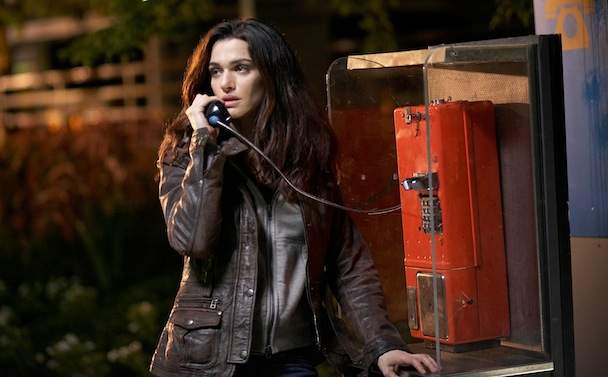The Whistleblower
Rachel Weisz stars as a peacekeeper who investigates the sex trafficking trade in Bosnia, including the involvement by her fellow UN workers and international police.
Overview
All too often the staggering numbers behind global atrocities render them abstract and untouchable — a regrettable yet perhaps unavoidable reduction of human suffering into statistics. We know this of war, famine and poverty, and sadly now the scale of human sex trafficking places it squarely on that same list. Recent UN estimates place the number of women and children being trafficked every year for the purposes of forced prostitution, labour and other forms of exploitation at anything between 700,000 and 4 million. Human trafficking has been identified as the fastest growing and second-most lucrative form of organised crime in the world (after drug trafficking), with annual profits for the illegal activity now exceeding $9 billion. It is a terrifying, escalating and global violation that undoubtedly merits greater awareness than is currently being afforded.
So enters director Larysa Kondracki and her confronting debut film, The Whistleblower. The movie tells the 'based on true events' tale of Kathryn Bolkovac (Rachel Weisz), an American police officer who moved to Bosnia following the war in 1999 as a UN peacekeeper. Bolkovac's intelligence and determination quickly saw her promoted to Head of the UN's Gender Office, where she learned not only of the rampant sex trafficking trade around her but also of the shocking involvement by her fellow peacekeepers, UN workers and international police under the veil of diplomatic immunity. What follows are Bolkovac's dogged attempts to rescue as many of these victims as possible while exposing the UN's involvement and bringing those responsible to bear.
Interwoven with Bolkovac's story is the tale of a hapless Ukrainian teenager named Raya (Roxana Condurache), whose horrific experiences remind us of the uncomfortable humanity within this most inhumane practice. Much like the girl in the red coat from Schindler's List, Kondracki uses Raya as a singular device to symbolise the wider plight of the faceless masses for both Weisz's character and the audience in a terrifying and tragic fashion. Together they encounter widespread corruption, corporate indifference, intimidation and unspeakable violence in the midst of a disturbing and baffling moral vacuum.
Ultimately, The Whistleblower falls short of the standard one might expect from such a powerful true story and talented cast, though thankfully its subject matter (and Weisz's performance) will ensure it finds an audience. The screenplay in particular, which Kondracki also wrote, periodically stumbles under structural flaws, and the film's title rather clumsily negates the overall narrative suspense. Weisz, however, is at once fearless and impressive in her portrayal of Bolkovac, and she's capably (if not far too briefly) assisted by Vanessa Redgrave, David Strathairn and Monica Bellucci in supporting roles. If nothing else (and there's definitely 'else'), The Whistleblower offers an uncompromising look into the disturbing world of human trafficking and demonstrates the entirely preventable side to it, if only people are prepared to stand up and act. If you're interested in learning more about the problem, along with ways to become involved, check out the amazing Aussie not-for-profit Project Futures and their terrific Stella Fella campaign.





